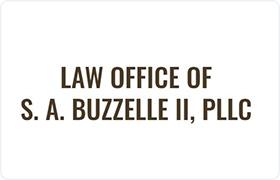Phoenix Bankruptcy & Debt Lawyer, Arizona, page 2
Sponsored Law Firm
-
 x
x

Click For More Info:
-
Law Office of S.A. Buzzelle II, PLLC
14050 N 83rd Avenue Suite 290 Peoria, AZ 85381» view mapBankruptcy & Debt Law Your Trusted Bankruptcy Attorney
If you are in need of legal services for matters relating to bankruptcy and divorce, rely on Law Office of S. A. Buzzelle II, PLLC in Peoria, AZ.
800-873-4991
Michael Zdancewicz
Estate Planning, Bankruptcy, Personal Injury, Business, Mass Torts
Status: In Good Standing
FREE CONSULTATION
CONTACTFREE CONSULTATION
CONTACTFREE CONSULTATION
CONTACTFREE CONSULTATION
CONTACTFREE CONSULTATION
CONTACTFREE CONSULTATION
CONTACTMartin J. Berkley
Employment Discrimination, Consumer Bankruptcy, Bankruptcy, Bankruptcy & Debt
Status: In Good Standing
FREE CONSULTATION
CONTACT Stanley A. Buzzelle II Peoria, AZ
Stanley A. Buzzelle II Peoria, AZ Practice AreasExpertise
Practice AreasExpertise
